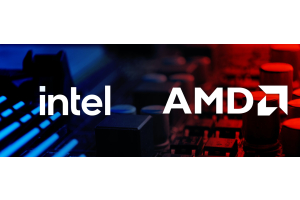We use cookies to offer you a better experience. For more information on how we use cookies you can read our Cookie and Privacy Policy.
computer components
-
July 18, 2023
Computer memory may seem like a complicated subject, but we can help you unravel the mystery by exploring the differences between RAM (random-access memory) and ROM (read-only memory). It’s not as confusing as it seems as you’ll learn in this overview.
-
May 08, 2023
There are a number of confusing sets of terms in everyday computing, and one of those set terms include ‘RAM and Storage’. Often you’ll find people using one term when they mean to refer to the other thing that is because both memory and storage are places where your data is held.
-
May 05, 2023
The word "cache" may have popped up in your conversations about computers, performance, and – more specifically – memory. But what does it really mean and why does it matter?
-
January 29, 2021
If you’ve done any research on motherboards or computer performance, you may have come across the term “chipset.” This essential PC component plays an important role in making everything work, but what does a chipset actually do in your computer?
-
January 29, 2021If you’ve done any research on motherboards or computer performance, you may have come across the term “chipset.” This essential PC component plays an important role in making everything work, but what does a chipset actually do in your computer? Learn more about this term and join the ranks of computer-savvy consumers who know what to look for when they shop.
-
January 26, 2021
The word "cache" may have popped up in your conversations about computers, performance, and – more specifically – memory. But what does it really mean and why does it matter?
-
April 05, 2019IOGEAR HUB-C - USB-C to 4-port USB-A HubIOGEAR HUB-C - USB-C to 4-port USB-A HubIf you’ve owned a PC, you may already be familiar with the computer ports and connections available on your device. What you may not know is that some of those ports are decades old.
-
March 06, 2019
Keeping your PC’s most vital components at their ideal operating temperatures is one of the best ways to improve stability and functionality. Thermal regulation prevents unnecessary strain during day-to-day tasks and increases your computer’s lifespan by cutting back on the accumulation of wear over time.
-
March 06, 2019Keeping your PC’s most vital components at their ideal operating temperatures is one of the best ways to improve stability and functionality. Thermal regulation prevents unnecessary strain during day-to-day tasks and increases your computer’s lifespan by cutting back on the accumulation of wear over time. Traditional designs and most out-of-the-box configurations rely on air cooling systems that use a series of fans and ventilation ports to prevent the accumulation of hot air.
-
February 28, 2019
High-performing gamers know better than anyone how much the right tech and gear can impact user experience and performance. When it comes down to that critical shot or strategic ambush, having the best tech on your side really counts.






